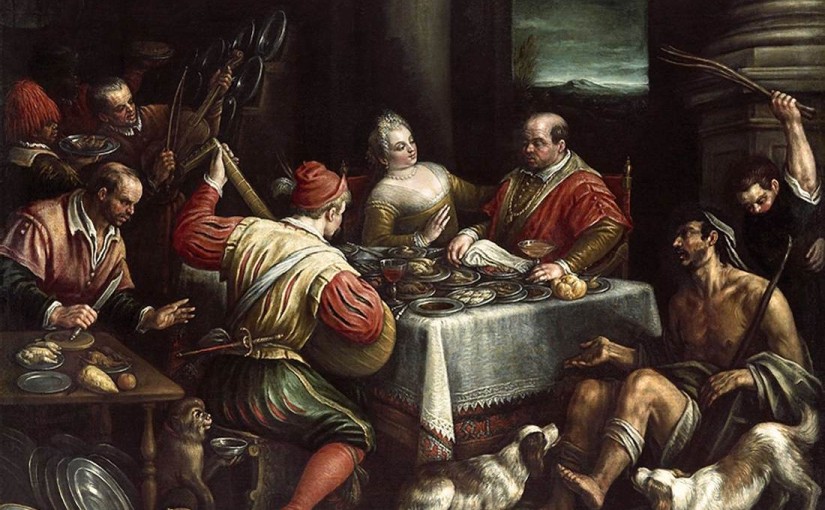I’m going to say something that is probably going to make you think I’m wrong. And that is that the great sin of the rich man was not the sin of neglecting poor Lazarus. Sure, that was certainly bad, but his greatest sin, I think, was that he trusted in himself instead of in God. That’s the deadly sin of pride, and the Fathers of the Church often tell us of the devastating effects of it. So for the rich man, well he had everything he thought he needed in life, and he trusted in himself and in his own means to get it. But he never had a relationship with God; he didn’t see that as something he needed. You don’t see him praying in the story or even giving thanks to God for his riches. All you see is him doing is enjoying what he has amassed, to the neglect of the poor.
So later on in the story, in death, he wants the good things God will provide for those who trust in him, people like Lazarus for example. Lazarus has suffered much, and as the Old Testament Prophets proclaim, God is especially close to the poor and needy, so now he is exalted. But the rich man isn’t. He has already made his choice, and unfortunately now, trusting in himself doesn’t bring him anything good.
So the problem with this is that we are often the rich man and not so much Lazarus. We have a lot of stuff, we are blessed on earth more than most of the people in the world today. But sadly that often puts us at odds with the things of heaven. We can’t reach out for those when we’re holding on to the passing things of this world. We can’t take the hand of Jesus when we’re juggling the stuff life throws our way. That’s why fasting is so important during Lent, as well as almsgiving: both bid us let go of passing things so that we can have, like Lazarus, things eternal. Both bid us trust in God, not in ourselves and other human beings. Jeremiah says it plainly today: “Cursed is the man who trusts in human beings, who seeks his strength in flesh, whose heart turns away from the LORD.” But, conversely, “Blessed is the man who trusts in the LORD, whose hope is the LORD.”
So the question is, in whom do we trust? In ourselves? In other people? Or in God? “Blessed are they,” the Psalmist says today, “who hope in the Lord.”
